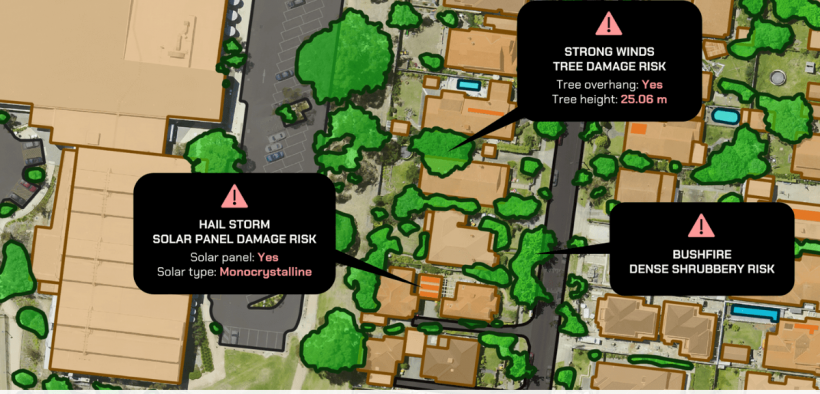Australia, like many other countries, is rapidly advancing in the digital age, and its government is no exception. Its citizens are looking for personalised services coupled with a more seamless experience across various government departments and agencies. Today’s government acknowledge this change and is working to create trusted services without borders or silos.
As we continue to witness the maturing digital transformation of government services, it is important to note that address data plays a crucial role in this process. Foundational address data has emerged as an important component of modern economies because it assists governments and businesses in identifying and understanding their constituents or customers, allowing them to provide targeted services and improve their communication strategies. It enables governments to provide better services to their citizens by ensuring the delivery of correct addresses and improving demographic information accuracy, especially during voting and the census.
In addition to service delivery, address data provides critical location intelligence that can be used to tailor policies and programs to specific regions, monitor and manage the environment, track air and water pollution, promote sustainable development and more. The importance of location intelligence also extends to disaster management, providing support through all 4 stages of emergency management: resilience, response, recovery and prevention. It can be used to identify affected communities, map evacuation routes, and track the spread of infectious diseases. Agencies can use it to identify the community most affected by the emergency and map the evacuation route and more. As seen during COVID-19, the data can be used to track the spread of infectious diseases.
Policymakers gain an understanding of the needs of different regions and demographics, identifying areas with high levels of poverty and unemployment and developing infrastructure and services specific to those regions.
Location intelligence is also essential for renewable energy planning and efficiency, identifying areas with high potential for energy generation and high energy consumption levels. This information is useful to analyse energy use patterns and develop targeted energy efficiency programmes, reduce delivery time and improve delivery accuracy, track vehicle emissions or plan public transportation routes.
While it is important to know how location intelligence, especially foundational address data, is used by the government and businesses, it is equally important to understand that addresses are constantly created, updated, and retired, and address formats differ among address collectors and custodians. Since the address’s lifecycle is complicated it is critical to rely on a reliable source to gain access to comprehensive and up-to-date address data.

Geoscape has been providing a G-NAF (Geocoded National Address File)) since 2004, containing all physical addresses in Australia. With over 50 million contributed addresses distilled into more than 15.2 million G-NAF addresses, G-NAF is constructed from addresses supplied by ten contributors, including land agencies in each state and territory of Australia. The source data is independently examined and validated, textually and spatially matched, and a geocode is assigned to place the address on a map.
Recently Geoscape also released G-NAF Core which provides the richness and power of G-NAF in a comprehensive but easy-to-use format. And this is just one of the many data products and data-related APIs provided by Geoscape with the flexibility to access specific, reliable and valuable location data tailored to your needs.
Geoscape foundational address location data has been used by various department agencies, including the Australian Bureau of Statistics (ABS) and the NSW Department of Customer Service, to improve accuracy and efficiency in their operations.
ABS used location data to ensure the accuracy of the Australian Census and Geoscape contributed by provisioning and deploying secure, tested, single-tenancy Address Auto-suggest API service in a sovereign AWS (Amazon Web Services) environment, assisting ABS in meeting its goals while meeting census data currency, security, and scalability requirements. Similarly, NSW Point was developed for use by agencies of the NSW state government to enable address verification using reliable and authoritative national address data. Geoscape APIs—Predictive API and Addresses API—are the backbone of NSW Point.

For businesses interested in using location intelligence to meet their objectives, the first step is to identify goals and data sources required to achieve them while ensuring the accuracy of the data.
Appropriate tools and technology to analyse and visualise the data are also essential, assisting businesses in identifying patterns, trends and relationships in data, helping them make predictions and recommendations.
Once the necessary data and tools are in place, you can use location intelligence to improve business performance and drive growth. But using data can be tricky and it’s essential you spend less time wrangling data and allow the experts to deliver fit-for-purpose data solutions tailored to your business, enabling you to focus on responding to ever-changing business and market needs.
If you’re keen to explore how digitally empowered governments are utilizing the potential of location intelligence and how you can effectively harness location data, feel free to download our comprehensive eBook “The Power of Location: An In-Depth Guide for the Public Sector” or get in touch with us today.
Geoscape copyright and disclaimer notice: https://geoscape.com.au/legal/data-copyright-and-disclaimer/
Shaun Bennett is the Director of Data Solution at Geoscape Australia. With a passion for location technology, design and innovation, Shaun has over 15 years of experience in selling and delivering technical solutions for major events, emergency management and digital transformation.
























































